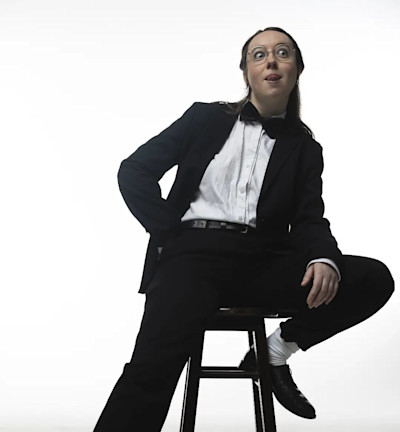
Credits: Akashachu photography (Photographer)
Some things to consider before upgrading your pastime to a side hustle.
I used to think that choosing just one career would signify some kind of personal failure (stemming from a Dolly Parton-esque fear of 9-to-5 office jobs), and I am constantly fighting the urge to add another element to my bio.
I am a writer and a performer. I also work anywhere between 2-4 day jobs, depending on the season. It may not seem that brave to say, “and that’s enough,” but for many creatives — especially performers — that can be one of the hardest things to accept.
It took me a long time to learn the difference between wanting to do something creative, and wanting to be a professional in something creative. Before you embark on a(nother) creative career, here are some things to consider.
To monetise or not to monetise?
Almost every performance-based art form has a huge range of costs to cover. You always need more costumes, make up, rehearsal space, professional development, mentoring, headshots, insurance, transport, storage, bodily maintenance and healing, and — depending on how your performance goes — drinks.
The proliferation of online productivity content can create a panicked all-or-nothing atmosphere, exacerbated by the rising cost of living. You may be considering monetising your hobby in order to make it more financially sustainable.
Often, monetising your hobby without sufficient planning or follow-through will mean you end up spending more. While the occasional pay check gives the illusion of funds recouped, a professional level of output requires a professional level of investment. If you’re not getting enough paid gigs, you might not be breaking even.
Ask yourself: how much money am I willing to lose on this project? That amount is your start-up fund. See how long you can make it last.
But all your friends are doing it
Take to your journal and ask yourself: do you really want this, or do you just want what your friends have?
Let’s discuss burnout’s best friend: FOMO.
The longer you stick around in any artistic community, the more friends you will have who are pursuing the art professionally. You may find yourself thinking, if they can do it, why can’t I?
You may even start thinking, if they are all doing it, I have to do it in order to keep up.
Unfortunately, FOMO is not a strong enough foundation on which to build a career.
This is where you’ll need to do some soul searching. Take to your journal and ask yourself: do you really want this, or do you just want what your friends have? Here it is important to remember the distinction between being a performer and being someone who performs — both are allowed, even if hustle culture is making you feel otherwise.
If you’re already a performer, and you’re considering professionally taking up another art form (probably with a fresh new Instagram account) ask yourself: does this need to be a separate project? Or can it inform the career that I already have?
Let’s be real
You need to be realistic about how hard you’re willing to work long term.
Performing is fun. Being onstage is the easy part — it’s rewarding, and makes all the other stuff worth it.
All the other stuff’ is the difference between a hobby and a career.
Performers are generally freelancers. You are your own small business. There is a lot of admin, marketing, and time spent on your computer instead of working on your art.
You need to be realistic about how hard you’re willing to work long term. Besides the money, how much time and energy do you have to invest? If the answer is, “not enough,” well — there’s your answer. To be clear, this doesn’t make you lazy, or not smart, or a failure. There are so many external factors to consider. Maybe you already have multiple fulfilling careers, maybe you’re a parent or a carer, maybe you need to prioritise your health. None of these mean a creative career is impossible, but they can be relevant when considering if your personal circumstances make that career realistic.
It also doesn’t mean you have to give up on the idea forever. Not enough time and energy right now might just mean right now. Check back in six months, a year, ten years.
But also, maybe you are lazy and not particularly business-savvy. That’s fine, too. Maybe it’s time to reject the idea that your worth as a person is directly tied to your ability to generate income.
So should you do it?
But take a moment to reflect — and do so regularly.
I’m not telling you to give up on your dreams. I’m not your parent. If you want to pursue performing professionally, go for it. If you feel that fire, follow it.
But take a moment to reflect — and do so regularly. Is a career really what you want or need? Or do you just want to do the thing?
I’m here to tell you that you’re allowed to participate in the performing arts just because you want to. A hobby is a valid choice, and often the more enjoyable, lower-stress option. The important thing is that you’re making the choice that is right for you, and not letting hustle culture bully you onto the wrong path.
More Articles
The Power of Dance/Movement Therapy.
By Petra Fire
You’re greeted by a therapist who invites you to move in weird and wonderful ways and chances are the therapist is also moving with you too.
Read More
Producing Mx Burlesque Victoria
Resilience and grace: what my first year of producing Mx Burlesque Victoria taught me.
Read More